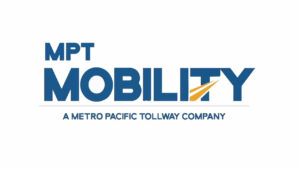By Ashley Erika O. Jose, Reporter
MPT Mobility Corp., the innovation arm of Metro Pacific tollways Corp. (MPTC), said its proposal to implement a “congestion fee” in Baguio City is currently being negotiated.
“MPTC, the project proponent, is still currently undergoing negotiations with the city,” Mark Richmund M. de Leon, vice-president for Smart Mobility Solutions, told BusinessWorld in a Viber message over the weekend.
He said that congestion fees, also known as mobility fees, represent just one of its four technology-driven mobility proposals. The congestion pricing scheme involves charging drivers a fee for traveling through designated areas during peak times.
The company said the goal of charging up to P250 in mobility fees is to ease congestion. “It is not a fine or penalty, like the current number coding scheme, but rather it is to change the behavior of everyday motorists and allow redistribution of traffic across the day during off-peak hours and not be concentrated during peak hours,” Mr. De Leon said.
Baguio City Mayor Benjamin B. Magalong said the amount may be reduced further.
“The government is being transparent. The P250 fee is just a proposal, it is not final yet and it is based on a study. The stakeholders’ engagement will continue,” he said in a video statement.
In 2023, MPT Mobility secured the original proponent status (OPS) from the Baguio local government for its proposed comprehensive smart urban mobility solutions. The project, valued at P2.5 billion, aims to enhance transportation efficiency within the city.
Mr. De Leon said the company’s proposals include a public transport fleet management system, advanced traffic management system, smart parking management system, and the mobility fees program.
“None of these components will be effective on its own, but together they make up the holistic but head-on approach to tackling the issues of traffic congestion,” he said.
Additionally, there is a proposed mechanism to redistribute revenues generated from mobility fees to enhance public transportation within the city.
He said the public transport fleet management system will give the city the capability to monitor and ensure that the dispatch and operations of public transportation are reliable, efficient, and responsive for commuters.
“As the private sector proponent, we will also install hardware and systems on each franchised public utility jeepney required by the city to be enrolled into the system,” Mr. De Leon said.
Under the new PPP code, the negotiations with the City Interim Code public-private partnership (PPP) committee is until June 29.
“After which, they will decide whether our OPS will be reissued. The city is also setting up more public consultations and stakeholder engagement,” MPT Mobility said.
“We are expecting that the council will be conducting more public hearings before their approval. Only after these approval from the councils, then the comparative proposals will commence,” it added.
Nigel Paul C. Villarete, senior adviser on PPP at the technical advisory group Libra Konsult, Inc., said that implementing mobility fees might not effectively resolve congestion problems.
“MPTC’s tech-driven mobility solutions to Baguio City falls short of what should be considered ‘inclusive mobility,’” he said in a Viber message on Sunday.
Mr. Villarete said traffic congestion is a symptom of poor transport planning.
“When you have pneumonia, you will have a fever. Your sickness is pneumonia, not the fever…. in the same way ‘traffic congestion’ is not the problem, it is a symptom of the deeper problem — transport and mobility,” he added.
“The traffic might be ‘relieved’ for a short while, but it will resurface because of the deeper problem,” he said.
Rene S. Santiago, a founding member of the Transportation Science Society of the Philippines, said that congestion charging is an effective solution for addressing traffic issues.
“But without a good public transport system, it would be counterproductive,” he said.
Further, Libra Konsult’s Mr. Villarete said the government must also take a solicited scheme instead of going the solicited route.
“It will always be better and preferable, for the government, national or local, to execute PPP on public transport and mobility through solicited modes, rather than simply accepting unsolicited proposals,” he said.
MPTC is the tollways unit of Metro Pacific Investments Corp., one of three key Philippine units of Hong Kong-based First Pacific Co. Ltd., the others being Philex Mining Corp. and PLDT Inc.
Hastings Holdings, Inc., a unit of PLDT Beneficial Trust Fund subsidiary MediaQuest Holdings, Inc., has a majority stake in BusinessWorld through the Philippine Star Group, which it controls.





